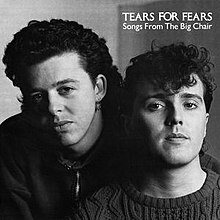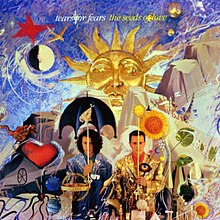Preface
I
would like to first state that this work is based on my personal
understanding. This is not intended as an authoritative piece
of work. It is more of a general outline which I hope will be useful
to others.
Some
people will question why a topic about physically defined morals is
needed. I see multiple reasons. One reason is because too many
people’s ethics are tied to supernatural beliefs. Some even
go as far as to say that morality requires religion. But this is
false. There are lots of people who have a sense of ethics without
religion. Also, there are common morals across some quite
different religions, which removes exclusivity from any one religion.
Another reason is that morals tied closely to supernatural beliefs
are inconsistent and unstable. A reason why some religions have
a spectrum of people from fanatical killers to peaceful non-violent
folks is because many religions’ scriptures support both. For
Christianity, some people claim that the old testament laws are
superseded by Christ’s sacrifice while others point to his
statements about all the old laws being valid.
A
confusing factor is about post-religionist morals. People who
go through an “immoral” period after they leave a religion are
used as evidence for the religious beliefs. But I believe that
this shows the opposite. Using religion to teach morals is tenuous at
best. Not only are the old morals difficult to modernize with new
knowledge (Religionists’ perspective on gays as example) but people
sometimes have to regain ethical footing after leaving a belief
system. Ethics are more consistent over time and more easily
maintained by people as their beliefs change if the ethics are
grounded in the physical. This is because the ethics are independent
of the changing beliefs. Unethical behaviors not based in religion
have little to hide from when the supernatural or god cards are not
played.
I
believe that humanity needs to wholly embrace ethics with physical
origins. All religions have changed over time while most have
internal conflicts. Even the gods change over time, including
the judeo-christian ones (plural intended). Additionally, the morals
written down are those held by the authors at the time of the
writings. Regardless of what religionists claim, the morals in
the texts of religions are based on people’s perceptions and
information, often full of biases and inaccuracies. As new
information needing new ethics and understanding of behaviors becomes
better, the ancient morals can’t keep up. But physically
based ethics can grow with modern understanding of things. Physical
ethics can use new knowledge to remove the harmful ethics and add new
ones as needed.
So,
how am I doing with regards to ethics. In a way, I can be
compared to how our societies are transitioning from supernatural
authority to physical reality for ethics. I was once a devout
Christian. I read the Bible from beginning to end 3 times by the time
I was 17 years old. But experiences in my late teens challenged my
beliefs. I struggled with attempts to believe in a god, the
soul and so on for some time. But I eventually realized that the only
constant is the physical. So I reoriented my perspective to a purely
physical one. Since my morality was so closely associated with
the religion of my youth, I made some ethical mistakes. The process
is not complete. But I strive to be a fully ethical person based on
the physical model. My biggest shortfall is in the personal category.
The personal ethics include balanced exercise and a healthy
diet. I’m still working on those things.
-----------------------------------------------
Although
I will be discussing ethical categories, ethics in 1 category affect
other categories. For instance, how we treat ourselves can
affect chemical states in the brain. This, in turn, can affect our
emotions which can then affect our social ethics. Personal
knowledge can also affect social ethics. A lack of understanding as
to why we react in certain ways can lead to behavioral patterns which
negatively impact our social ethics.
PERSONAL
ETHICS
How
we treat ourselves
Three
key ethics in this category are fitness, diet and self awareness. Of
these 3, I want to primarily discuss personal awareness. Self
awareness affects the fitness, diet and other personal ethics. For
example, I didn’t notice how much I was getting out of shape. But
self awareness affects the other ethical categories. I can contrast 2
people who illustrate this. One guy was quick to anger. When
people would point out that his anger seemed out of proportion, he
would get angrier. While I knew him, he never realized how his anger
issues were due to something in him. He believed that it was
always the stupidity of others which sparked his anger. Another guy
had similar anger issues. He said that he once tended to be angry all
the time. But he realized that his anger was not proportional to the
stuff which angered him. He sought psychological and medical
help. It was eventually found that there was a neurological cause to
his rages which could be addressed with medication. These are
examples of how self awareness affects social ethics. But self
awareness is also socially useful for general purposes. Being
aware of the nature of our reactions helps us understand that our
reactions may not match the stuff being reacted to. For instance,
some people tend to have more negative reactions to things which are
different. But an adequately self aware person will look at the
differences independent of his or her reactions. Good fitness
and diet can have effects beyond the personal as well. Fitness and
diet can affect mood, which then affects how others are treated.
SOCIAL
ETHICS
How we treat others and their stuff
A
physical starting point supports a more socially progressive approach
to ethics. We can examine differences based on their real
effects on people. Certain standards remain, such as avoidance of
theft and violence. But we can appreciate diversity more from a
physical perspective. We can distinguish between real harm from
imaginary harm. Our social ethics evolve as our understanding does.
And we do endeavor to understand. We don’t assume that
ancient restrictions are valid just because they are still taught. We
don’t assume that our initial reactions are necessarily correct.
We emphasize empathy. We look at our impact on others. As a
community of people, we sometimes have to alter what we want if it
negatively impacts others. But we don’t restrict other people’s
wants if they have no negative impact.
ENVIRONMENTAL
ETHICS
What
we put into the air and water has consequences. Those
consequences require new ethics which we have been ill prepared to
deal with. It’s rather enlightening to read about
environmental history. Human difficulties with modifying behavior to
ensure a healthy environment have existed since before written
history. But the environmental degradation was more localized
than current times. Since earth is a mostly closed system, the
impacts are accumulating. We’ve made corrections but we continue to
make excuses for not being cleaner. It doesn’t seem to matter
that people’s health and lives are impacted. Environmental ethics
take a back seat to economics and convenience. My physical
perspective shows me that I need to do better at a personal level.
But the responsibility for keeping Earth a healthy place requires
changes by all peoples, companies and countries. We can rebuild
a healthy environment. We have the technology and knowledge. We have
the capability to create environments which are better for the
current and future generations. But it requires more use of our
cognitive abilities and more intellectual honesty.
COGNITIVE
ETHICS
I
believe that there are also cognitive ethics which affect all the
rest. This may seem obvious to some people. But I believe that
how we process information and understand things are factors which
are hugely neglected. I am an example. I was raised in an
environment which was rather intellectually stunted. Religion was a
factor in this. But it went beyond that. There were a lot of topics
which I was misinformed about. The adults did not intentionally
deceive me. They believed the things which they passed on. And I was
taught to take too much stuff at face value. But there was also the
“gut” mentality. You’ve probably heard it. “Go with
your gut feelings”. “First impressions are often right”. And so
on. But I came to realize that misinformation breeds misinformation.
And there is no such thing as first impressions. How we judge things
are often based on a combination of past experiences, what we are
taught and neurological factors. I had kind of a personal
cognitive revolution. I learned to look a bit more thoroughly at
things. My opinions changed as I learned, as did my behaviors. I am
still working on these things. But that is part of the point. I
acknowledge that my information is imperfect and my judgements may be
flawed. I, for one, am still endeavoring to do better, to be better,
to ask questions and learn… to evolve.
I
read some interesting points regarding intellectual honesty which fit
my discoveries.
-
One’s
sense of conviction should be in proportion to the level of clear
evidence assembled
-
Be
willing to acknowledge and question one’s own assumptions and
biases
-
Be
willing to acknowledge where your information is weak
-
Be
willing to acknowledge when you are wrong
-
Be
willing to realize when your opinions are colored by emotion
-
Issues
go beyond the individuals who are discussing them
-
Be
careful how you fill in the gaps
-
Commit
to critical thinking
-
Be
willing to look at ideas contrary to your own but be fact based
 Click on the internet access icon in the right side of the task bar. Select the properties link for the network which you want to set as a metered connection. In the settings window for the connection, scroll down until you see the metered connection section. Turn "set as metered connection" on. Then close the settings window. Windows major updates are now blocked for this specific connection. As noted, this has to be done for every connection to avoid the updates. But that's OK since the major updates take a substantial amount of time to download and it only takes a few seconds to turn the metered connection on.
Click on the internet access icon in the right side of the task bar. Select the properties link for the network which you want to set as a metered connection. In the settings window for the connection, scroll down until you see the metered connection section. Turn "set as metered connection" on. Then close the settings window. Windows major updates are now blocked for this specific connection. As noted, this has to be done for every connection to avoid the updates. But that's OK since the major updates take a substantial amount of time to download and it only takes a few seconds to turn the metered connection on.




